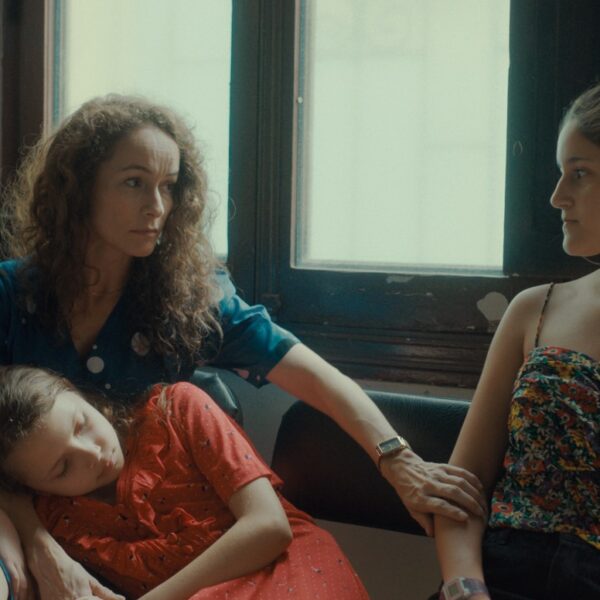a review on "Reinas"
Lima, Peru, 1992: The country is facing political and economic crises and challenges. While the economy collapses and drastic inflation burdens the citizens, terror and violence are on the political agenda. In April 1990, elections are held, which Alberto Fujimori wins with his newly founded "Change 90" party. He is seen by the population as a political outsider who stands up for disadvantaged groups and wants to take action against terrorism and corruption.
He is supposedly fighting terrorism with his policy by handing out weapons to the local communities so that they can defend themselves against terror. In addition, the executive is no longer taking action against basic terrorism, but rather against individual groups suspected of terrorism. Today, the Inter-American Court of Justice accuses Fujimori's policies of drastic human rights violations. In April 1992, Fujimori dissolved parliament, bringing the judiciary and the country under his authoritarian control. The military supported this action and took action against critics of Fujimori's policies and the political opposition.
The political situation and Fujimori's government is tolerated by a large part of the population in the 90s, but also causes many citizens to leave their homeland in the hope of a better life in the USA or Canada. This is where "Reinas" takes its place, the autobiographically inspired international co-production by director Klaudia Reynicke.
The film focuses on the sisters Lucia (Abril Gjurinovic) and Aurora (Luana Vega), who live with their mother Elena (Jimena Lindo) in Lima and are about to move to the USA. While the two sisters are about to spend their last days with friends and family, Elena still has to try to get her ex-husband Carlos (Gonzalo Molina) to give his permission for their daughters to leave the country with her. But Carlos is known for being here and there, but not with his family. His relationship with his daughters has been almost non-existent for years. When he unexpectedly arrives at the door on Aurora's birthday, new and old feelings about family, care and trust are mixed in with the already confusing feelings of saying goodbye and starting over for both daughters and parents.

Above all, "Reinas" tells the story of three incredibly strong women. Of Elena, who is a single mother and does everything for her daughters, works on the side and prepares everything for the move to the USA. And of Lucia and Aurora, who grew up without a father most of the time, find themselves somewhere between being children and growing up in a politically tense country and now have to leave their homeland. When Carlos turns up, I'm initially filled with a sense of anger at him and his unfulfilled parental role, and at the chaos and confusion he brings into the lives of his daughters and ex-wife after he reappears.
But as the film progresses, this anger gives way to a kind of understanding, because Reynicke also manages to capture Carlo's view of things and feelings and bring them across to the audience. Feelings of regret and failure because he was not there for his daughters as a father, no longer has a connection to them and they turn away from him. Feelings of fear that he could lose his daughters forever. The understanding that grows is by no means a justification for Carlo's behaviour - especially as he repeatedly fails to keep his promises and obligations in the course of the film - but "Reinas" manages to bring the feelings of all those involved to the screen in such a way that viewers can empathise with all the characters, motives and situations. In any case, this is also thanks to the authentic acting skills of the main characters.
Reynicke, who herself lived her first years in Peru and is now the mother of two children, wanted to reconnect to her childhood and the worries and feelings of a family in Peru in the 1990s in her third feature film "Reinas". She does this well and creates the image of a family in which different feelings come together, grow apart and yet somehow find each other again in the end.
Many viewers can certainly recognise themselves in "Reinas" and identify with one or two of the feelings of a protagonist. In Generation's K-Plus programme, "Reinas" is certainly a multi-layered and sensitive film for people of all ages, but also especially for adolescents, and I can only recommend it. During the festival, the film can still be seen on sunday (02/25) at 09.30am at the Zoopalast.
Sources:
- BPB (2024): Die Ära der „Antipolitik“ Politische Geschichte Perus 1990 bis 2006. https://www.bpb.de/themen/mittel-suedamerika/lateinamerika/44854/die-aera-der-antipolitik/
- Deutschlandfunk (2020): Als Alberto Fujimori Präsident von Peru wurde. https://www.deutschlandfunk.de/vor-30-jahren-als-alberto-fujimori-praesident-von-peru-wurde-100.html

